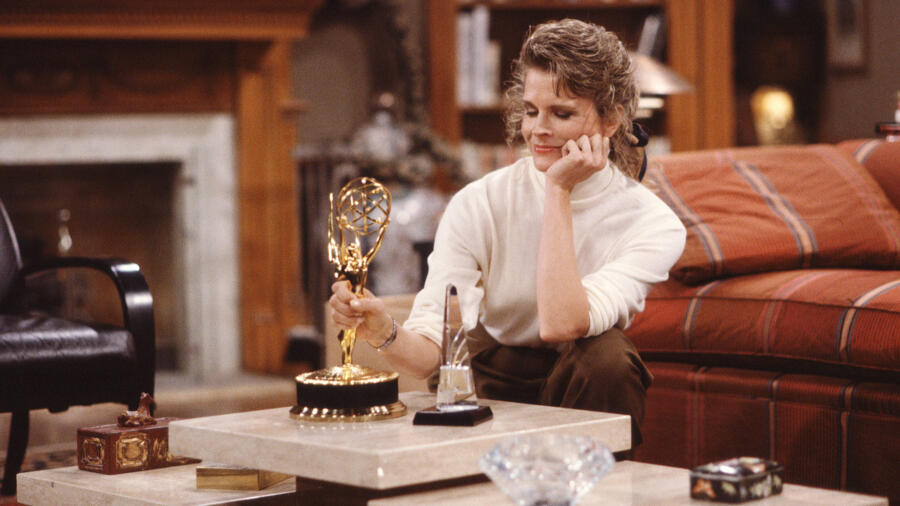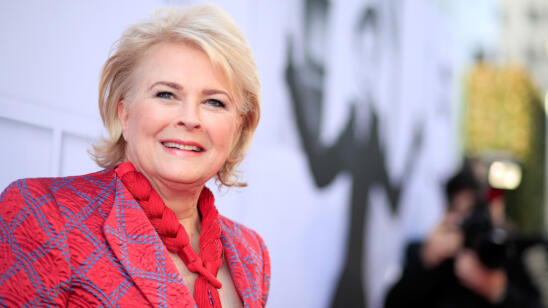On September 10, 1995, Candice Bergen took home her fifth Emmy for playing Murphy Brown. This win made her the third performer in Emmy history to win five Emmy’s for playing the same character. Although a comedic sitcom, “Murphy Brown” made waves in 1992 as the center of VP candidate Dan Quayle’s controversial criticism of America’s eroding “family values” that he thought the show promoted.
Born in Beverly Hills, CA on May 9, 1946, Candice Bergen got her start as a fashion model gracing the pages of Vogue. After starring in hit films in the 1970’s and television shows in the 1980’s, Bergen landed the title role in “Murphy Brown” in 1988. The eponymous character, a glass-ceiling-shattering investigative reporter and news anchor, was forty, single and fresh out of the Betty Ford Clinic. On air for a decade until 1998, the popular series followed the trials and tribulations of the hard-hitting news personality and her fellow reporters at the fictional newsmagazine, FYI.
Although a hit TV show from the start, “Murphy Brown” made major headlines on the eve of the 1992 presidential election. Vice Presidential candidate Dan Quayle castigated the fictional character for deciding to have a child outside of wedlock. On May 18, 1992, millions of Americans tuned in to see Brown have her baby, making it the number one sitcom of the week. The next day, Quayle gave his infamous “Murphy Brown” speech: “Bearing babies irresponsibly is simply wrong… It doesn’t help matters when prime-time TV has Murphy Brown, a character who supposedly epitomizes today’s intelligent, highly paid professional woman, mocking the importance of fathers by bearing a child alone and calling it just another lifestyle choice.”
Timed a few weeks before the 1992 election (Bush/Quayle vs. Clinton/Gore), the show gave the characters a chance to respond to Quayle’s attack. After airing portions of Quayle’s speech about Murphy Brown on the TV show, Bergen’s character said, “Perhaps it’s time for the Vice President to expand his definition and recognize that, whether by choice or circumstance, families come in all shapes and sizes.”
Aside from making political history, “Murphy Brown” can be credited for inspiring strong and complicated female leads on TV today.


